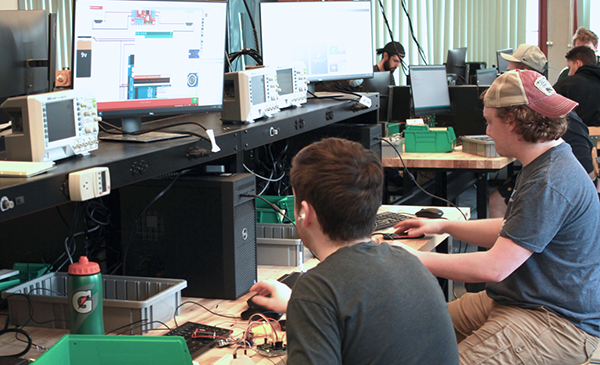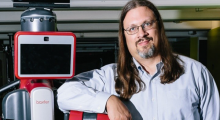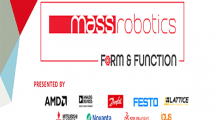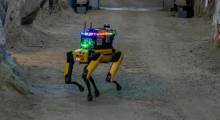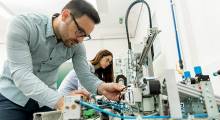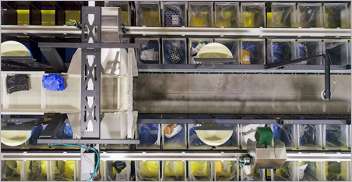Last week, I had the good fortune to host ff Venture Capital’s 64th Idea Dinner on the challenges and opportunities facing the automation industry. Part of my firm's mission is to partner with corporates to bolster our portfolio’s reach and contribute to the broader innovation ecosystem. In this spirit, I brought together 15 leaders from manufacturing, real estate, construction, defense, and the wider mechatronics ecosystem. As we ate a steak dinner sponsored by TriNet, each participant shared their experiences with hiring, retaining, and attracting quality talent in the age of Gen Z.
Futurist Nikki Greenberg shared five insights about this new generation of employees:
- Gen Z wants to work on cool projects
- Gen Z sees value in its inexperience and naiveté
- Its members are not afraid to experiment and fail
- They expect to have a voice in the room
- Low-value grunt work is unattractive to them
According to Greenberg, Millennials and Zoomers will make up about three-quarters of America’s workforce by 2030. She cautioned Gen Xers that this population is not only the largest global demographic but also the first generation to have never known a world without the Internet or mobile phones.
In Fred Wilson speak, we are the digital immigrants, while these younger minds are the natives. While the world is abuzz with ChatGPT and big tech layoffs, startups are still on the hunt for top hires.
Funding fuels demand for Gen Z talent
December 2022 saw a bump in private financing of robotic innovations over 2021 investments, according to The Robot Report. This spike exceeded $1.14 billion over 55 deals ranging from investments in new sensor technologies to full-stack autonomy.
For example, European autonomous trucking startup Enride raised $500 million in December, up from $95 million two years earlier. This trend, which is counter to the global tech selloff, will be a boon to newly laid-off electrical, mechanical, and software engineers.
At the same time, it will put pressure on training a new crop of roboticists to fill the void of a growing list of open positions as more robot companies scale.
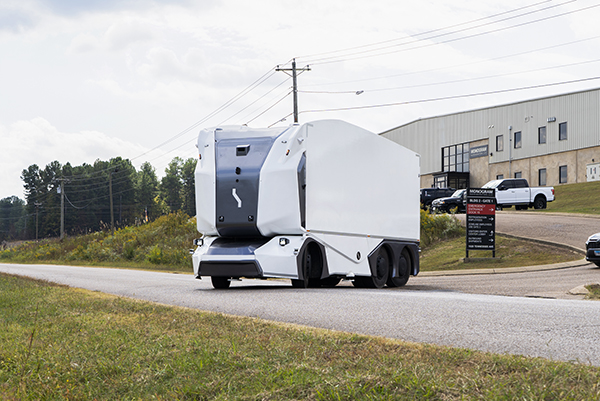
PSU promotes robotics innovation
As an adjunct professor at Yeshiva University, I’m fortunate to be able to engage young minds in entrepreneurship. While many universities, including mine, have expanded their innovation labs for startups, few have built targeted programs for training the next generation of robotic founders.
Tucked in the picturesque mountains of New Hampshire is Plymouth State University (PSU), home of the newest robot degree programs in the U.S. Last fall, I sat down with its president, Dr. Donald Birx, to hear his vision for training Gen Z roboticists.
“About seven years ago, we reorganized the whole university,” explained the administrator of 4,000 undergraduate and 1,000 graduate students. “We changed it from being a standard university that has colleges and departments to seven clusters.”
Dr. Birx elaborated further that the switch to a cluster-based program would enable greater experimentation, discovery, innovation, and entrepreneurship.
“And then we have clusters that focus on key areas,” he continued. “One of those clusters is the arts and technologies. The focus in there is: 'How do you bring together the art community and the technologists?'”
Birx noted that his overall mission is to create new technologies, which led him to build a unique robotics cluster. This bold vision was based upon New Hampshire’s leading role in robotic high school competitions. In fact, the FIRST Governor Cup is hosted each year at the university.
“We started getting more and more into the robotic space,” Birx said. “So we decided here is a place where there’s no program and asked how could one build a four-year program.”
New facility provides hands-on experience
He shared that his journey, which started four years ago with architecting the program, led to a grant this past year to outfit the laboratory and start engaging students.
“Plymouth State University has always been a hub of innovation and technology for students, and I’m thrilled to have helped secure $1 million to continue that excellence,” declared U.S. Sen. Jeanne Shaheen. “This award will support the construction of a cutting-edge robotics lab to provide hands-on technical learning for students.”
The grant will enable a 4,500-sq.-ft. facility that will feature some of the best Internet of Things (IoT) equipment, including resources for 3D printing, laser cutting, printed circuit board (PCB) design, CNC workstations, ROS visualization, Gazebo simulators, and an array of FANUC’s collaborative robots.
This will enable PSU’s robotics bachelor’s degree program to offer courses in electronics, mechanics, microcontrollers, manufacturing technologies, and programming.
“While most robotics programs focus on teaching students how to build or operate machines, through PSU’s Cluster Learning Model, robotics students will have opportunities to work in teams on real-world projects in collaboration with businesses, non-profit organizations, and other outside entities,” boasted the university last April.
“We accepted a first class. It’s just a pilot with 12 students in it,” shared Birx. The following year, he hopes to double registration so it can grow proportionately as they build out new classes.
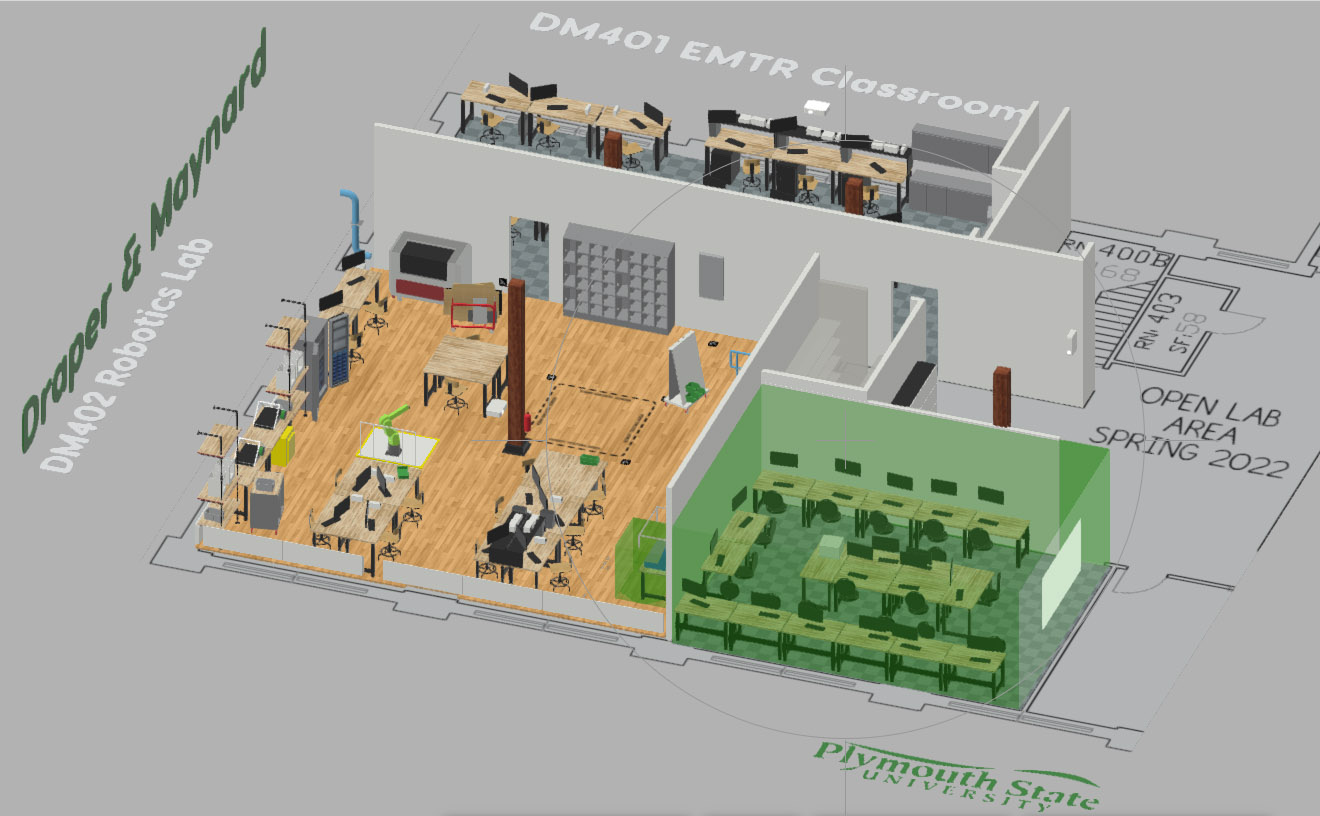
Cluster encourages collaboration
The mix of students reflects the unique cluster model of the university.
“One of the reasons we developed clusters, these seven clusters is so there would be lots of cross-talk between all these communities,” Birx explained. “So when I talk about a cluster. It means that these are not departments. These are not colleges. These are just groups of individuals that get together and that work across many disciplines.”
How can PSU motivate Gen Z students to follow the rigor that is required for robotics? Birx replied that his cluster model is probably best suited for this new generation.
“We take a variety of students from different disciplines, but build it in a team based environment so they can help each other,” he said. “So the whole construction of clusters is around this idea of bringing disciplines together.”
Birx added that students of humanities and the arts can help balance mathematical and science-minded peers. “We think that’s the most creative space for our program, where you’re really trying real ideas and concepts with students,” he said.
The sage wisdom of Dr. Birx echoed in my head last week, as my dinner guests discussed how to revolutionize collegiate education to meet the unique needs of this Chat GPT generation.

About the author
Oliver Mitchell is a partner at ff Venture Capital. His areas of focus are drones, robotics, and applied AI. Mitchell is also an adjunct professor at Yeshiva University. This column is reposted with permission.
Article topics
Email Sign Up

